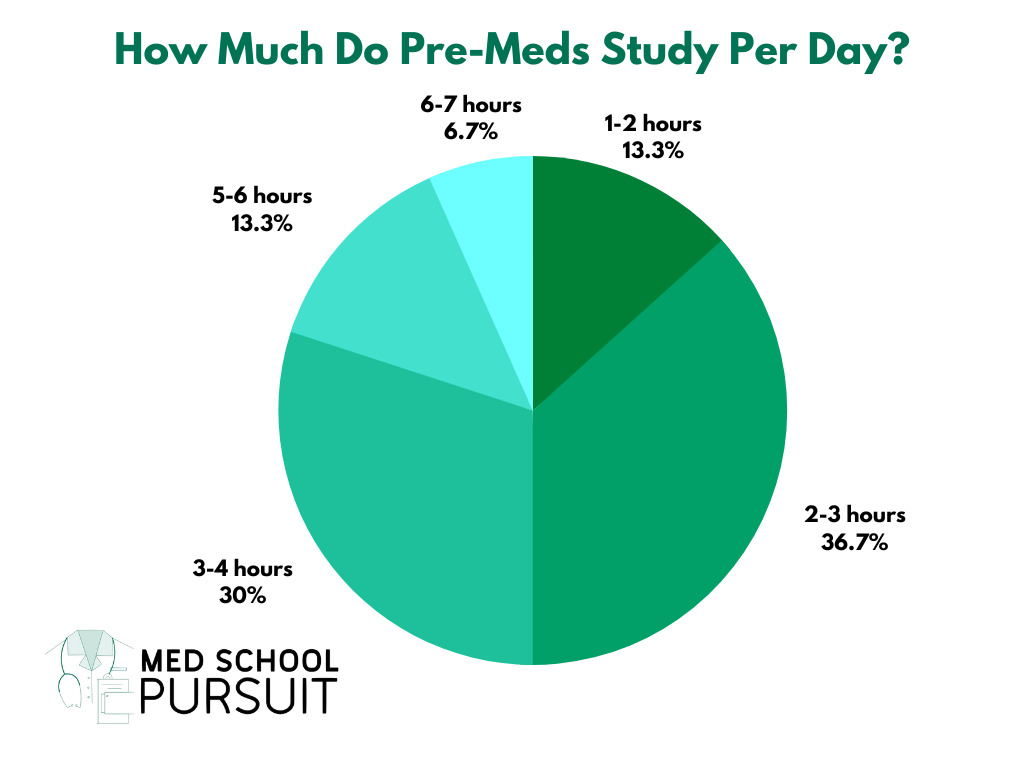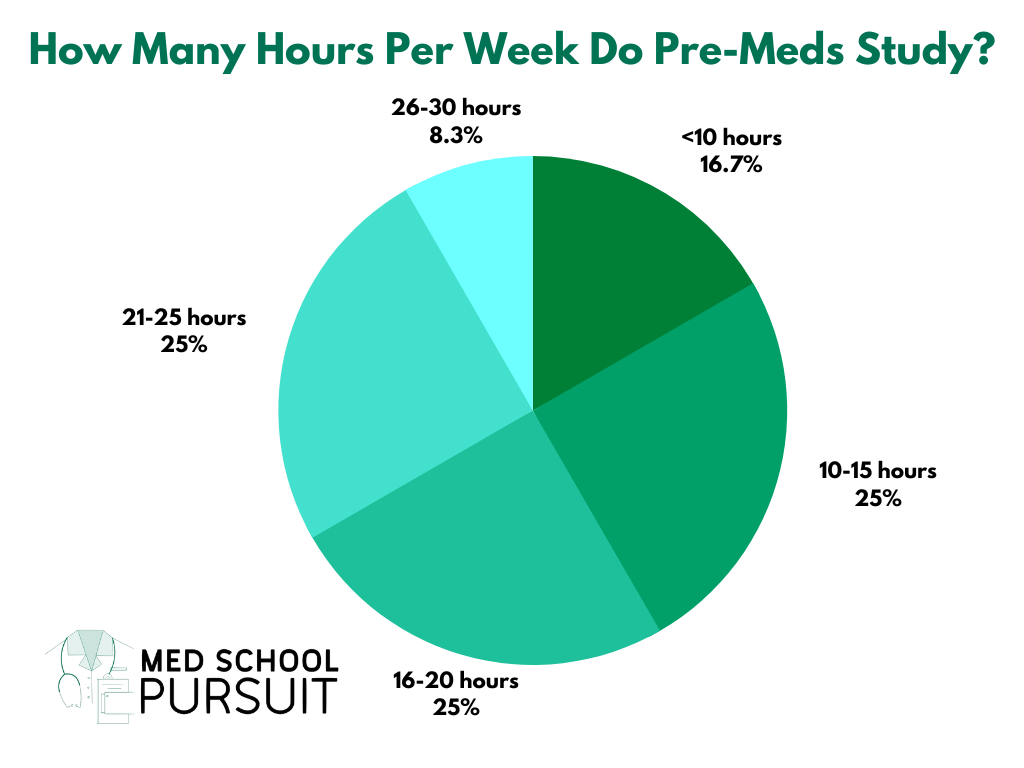You’ve probably heard from a pre-med advisor that you should be studying 3 hours for every hour of class. Well if you are taking 15 hours of classes, that equates to 45 hours of studying!
Seems like too much. With everything else going on in one’s life, It seems impossible to hit these hours.
After all, classes make up only one portion of a pre-med’s schedule. Medical schools expect you to put in a significant amount of hours into volunteering, shadowing, clinical experience, and other extracurriculars.
Well, the good news is that pre-med students spend a lot less time studying on average based on our survey of 30 students.
How much less exactly? The results are below.
How Much Do Pre-Meds Study Per Day? (Survey Results)
We surveyed 30 pre-med students to see how much they study on average per day during a typical week.
We avoided students who had a GPA lower than 3.5 because we wanted the results to show that the amount of studying correlated with good grades.
It should be noted that not every school is going to be equal. Some universities are more challenging than others and will require more time studying. But in general, all pre-med students take challenging science courses that require a lot of studying.
Here are the results:
Per day:

These metrics only included study/homework hours, no classes or extracurriculars. Classes alone add about 15 hours per week and extracurriculars for pre-meds can range from a few hours to 20+ hours per week.
Being a pre-med student is definitely a full-time job.
Despite all the horror stories you hear about the classes pre-med students have to go through, the study workload is not that much out of the ordinary. The majority of students study 2-3 hours per day.
How Many Hours a Week Should a Pre-Med Student Study?
We asked a different group of pre-meds how many hours a week they studied during a normal week to see if this was consistent with the daily results.
According to our survey, this is how much pre-med students study per week:

There were fewer surveyees to go off of here but it reinforced what the students said about how many hours they study per day.
Most pre-med students study somewhere between 10 and 25 hours per week.
Again, not crazy numbers. Sure this is more than the average college student studies but not that much more.
How Much Do Pre-med Students Study Before An Exam?
The amount of time students spent studying on exam weeks varied a lot per person. But as you can imagine, pretty much everyone ramped up studying time before exams.
The general consensus is around 8 to 10 hours per day about 2 days before the exam. Also, a lot of students tend to ramp up their studying by a couple of hours per day during the weeks leading up to midterms and finals.
While it is a good thing to be prepared for exams, you want to avoid cramming. The most successful pre-med students study consistently throughout the year and only have to ramp up their studying mildly before exams. These students also don’t pull all-nighters!
Check out our guide on how to study effectively as a pre-med student.
Quality of Studying Matters
I wanted to stress the importance of quality in studying vs quantity. When reading about what the pre-med students who studied on average 2 to 3 hours per day had to say, they emphasized the importance of quality study.
You can spend a lot of time studying and not getting much done. One important thing to do is avoid distractions. On average it takes about 23 minutes to get back to a task after being distracted.
You are better off studying for 1 hour with your phone off than for 4 hours being distracted!
Do Pre-Med Students Have Free Time And a Social Life?
Again, we all have heard horror stories of students working their butts off with no break in order to get into medical school. Sounds like being a pre-med student is very stressful. But do pre-meds have a social life?
Yes, pre-meds do and should have free time as well as a social life. Being able to unwind is very important in order to avoid burnout. I can say from personal experience that I had a great social life in college and still managed to get into medical school.